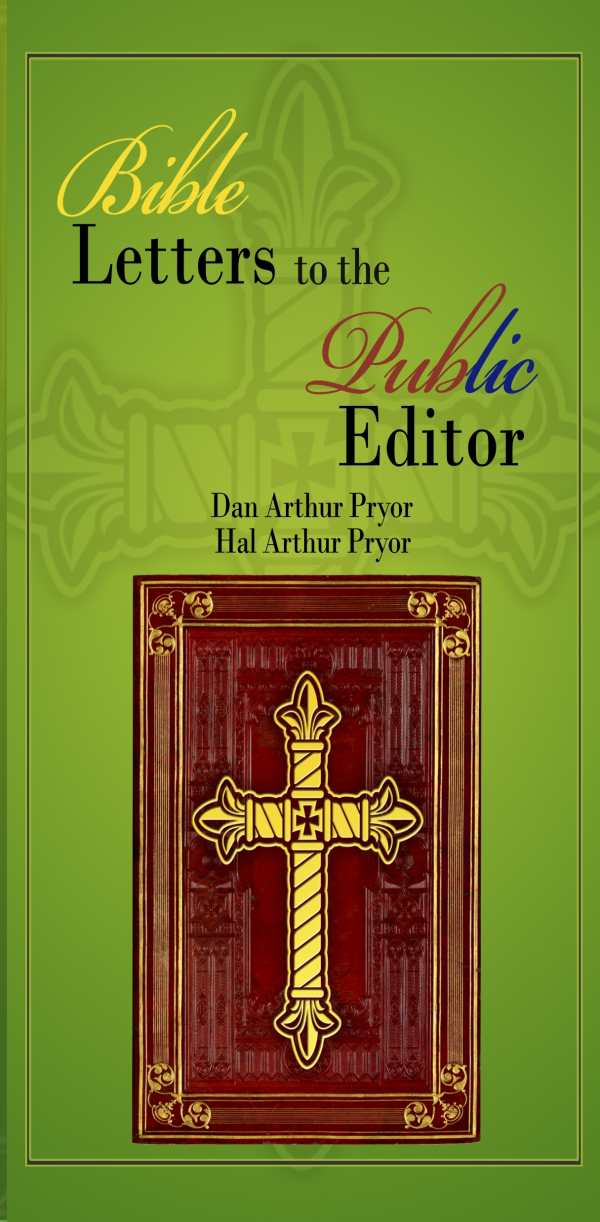
Bible Letters to the Public Editor
These letters’ opinions provide a nice snapshot of a pivotal time in American public discourse.
Dan Arthur Pryor’s collection, Bible Letters to the Public Editor, imparts a conservative Catholic perspective on contemporary events.
The book includes dozens of letters written by the author and his father that were submitted to various newspapers over a roughly thirty-year period. They reflect a range of issues, including abortion, gay marriage, bishops, priests, and martyrs. Most serve as a call to action for “slack” Catholics—those who are regarded as needing to return to the Church, and who the letters say should fix their lapsed morality.
The running perspective is that contemporary America suffers from a number of moral failings, as reflected every day in the pages of the local newspaper. These letters address such failings by using biblical citations, theological arguments, and staunch defenses of traditional Catholic teachings.
Some letters are more convincing than others. The Bible’s prophetic books are used to strong effect in their arguments against abortion. Letters are less compelling around issues like homosexuality, where they reference texts that are much more open to interpretation than their blunt statements suggest.
The arguments ultimately prove to be too context-dependent to offer much insight to outsiders. Even as collected here, the letters refer to articles and editorials that won’t be familiar to those not in conversation with the addressed newspapers. The letters maintain their controversial nature, but do so without sufficient context.
Writing is clear and journalistic in tone. Each letter is brief, relying on a mixture of reasoned arguments, metaphors, and occasionally clichés and parables to make their points, such as that of a frog slowly boiling as water is heated up. Biblical references are a constant.
A brief section offers suggestions to the audience for getting letters to the editor published, including e-mailing, following up, and discussions with editors regarding how to improve letters. It is generally good advice, though it evades exploring how a writer might tie each letter to a current event or story, something that the collection’s letters do well.
Taken as a whole, these pieces show how much the cultural environment has changed. Earlier letters are concerned with modernism, but subject matter changes over time, and letters become more and more anti-liberal and biting in tone. At one point, the book suggests that liberals’ moral virtues are “questionably worthless.” The opinions provide a nice snapshot of a pivotal time in American public discourse, raising faith issues that are not often included in traditional news reports.
Reviewed by
Jeremiah Rood
Disclosure: This article is not an endorsement, but a review. The publisher of this book provided free copies of the book and paid a small fee to have their book reviewed by a professional reviewer. Foreword Reviews and Clarion Reviews make no guarantee that the publisher will receive a positive review. Foreword Magazine, Inc. is disclosing this in accordance with the Federal Trade Commission’s 16 CFR, Part 255.
